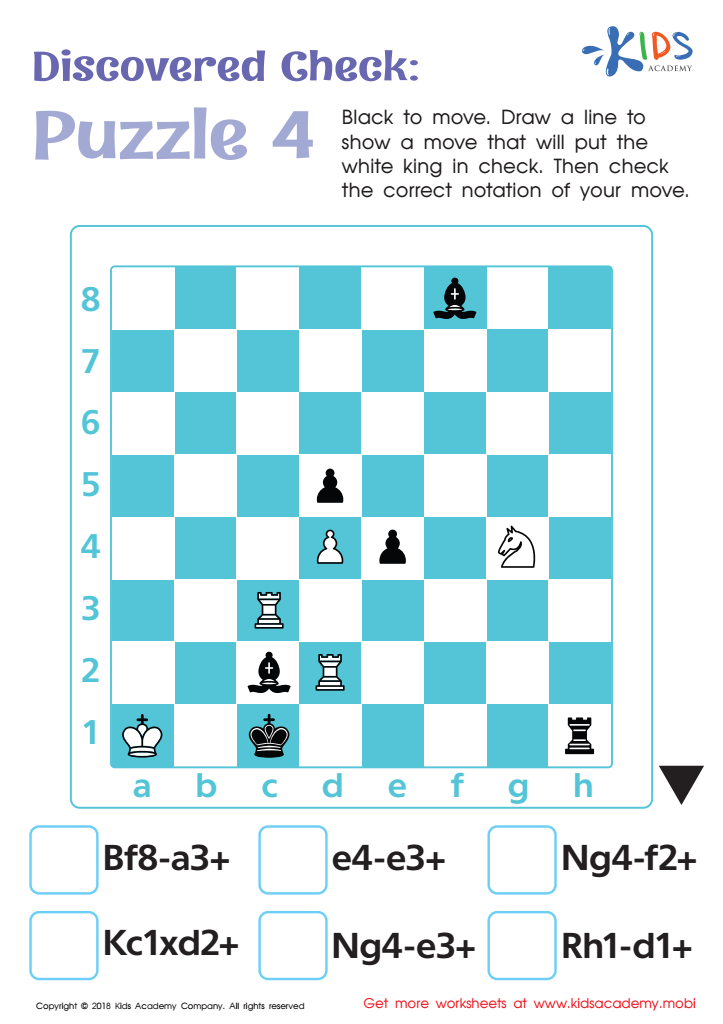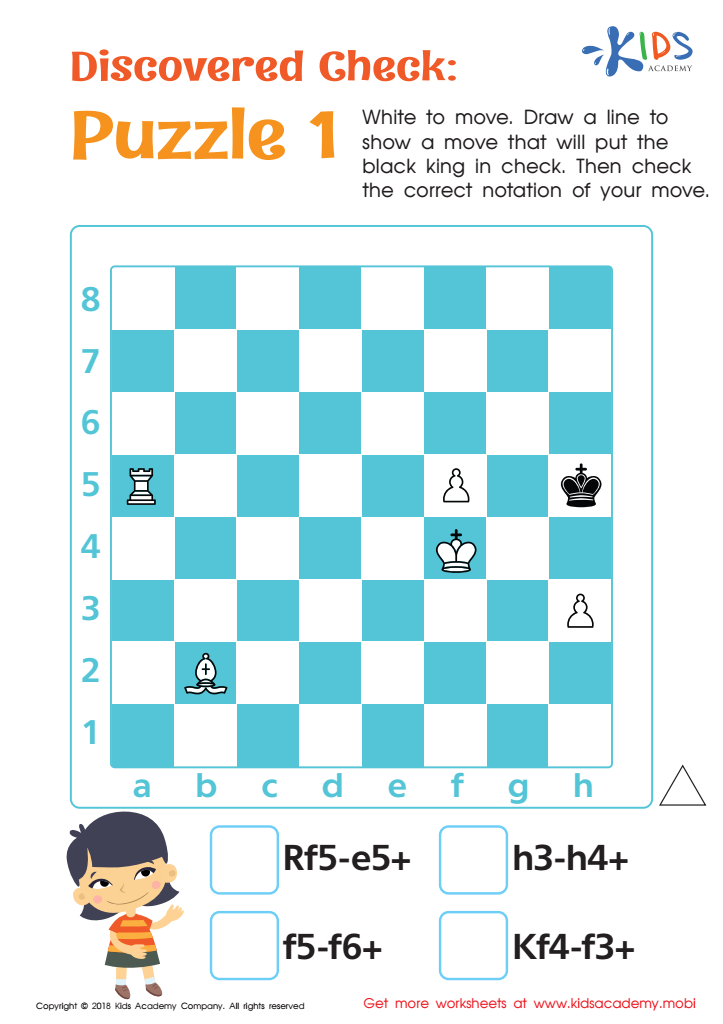Chess strategy understanding Easy Worksheets for Ages 6-9
3 filtered results
-
From - To
Discover our Chess Strategy Understanding Easy Worksheets designed for children ages 6-9! These engaging and interactive resources help young learners grasp fundamental chess concepts and strategies in a fun way. Each worksheet encourages critical thinking, problem-solving, and strategic planning, essential skills not just for chess but for personal development. Perfect for classrooms or at-home learning, our worksheets progress from basic tactics to more complex strategies, fostering a love for this timeless game. Enhance your child's cognitive skills while they enjoy playing chess! Explore our collection and inspire your budding chess enthusiast today!


Discovered Check: Puzzle 4 Worksheet


Discovered Check: Puzzle 2 Worksheet


Discovered Check: Puzzle 1 Worksheet
Chess is more than just a game; it teaches children valuable skills that can benefit them in school and life. For children aged 6-9, learning chess strategy helps develop critical thinking and problem-solving skills. When kids learn to anticipate their opponent's moves and plan their own, they practice making decisions based on logic rather than emotions.
Additionally, chess enhances focus and patience. Young players need to concentrate for extended periods, which can improve their attention span in the classroom. This focus translates into better performance in subjects like math and reading.
Moreover, playing chess promotes sportsmanship. Kids learn how to win gracefully and handle losses, fostering resilience. Understanding chess strategy enables them to appreciate the importance of practice, and encourages them to work hard to improve.
Finally, chess builds social connections. Children can form friendships while playing with classmates or family members, creating a fun way to interact. By caring about chess strategy, parents and teachers provide kids with a playful yet rich avenue for cognitive and social growth. Overall, chess is a powerful tool to cultivate critical life skills that will serve children beyond the game itself.





.jpg)











